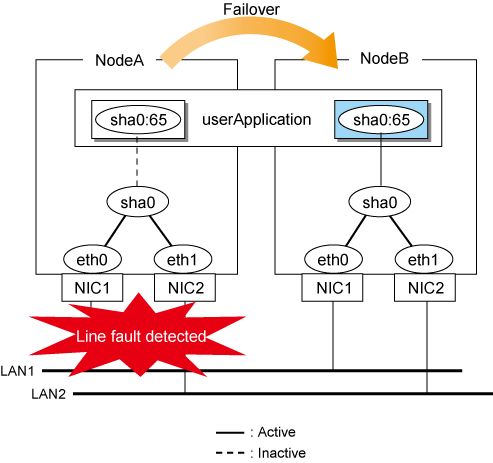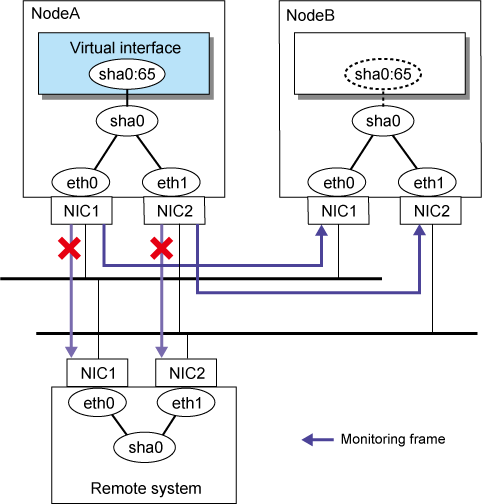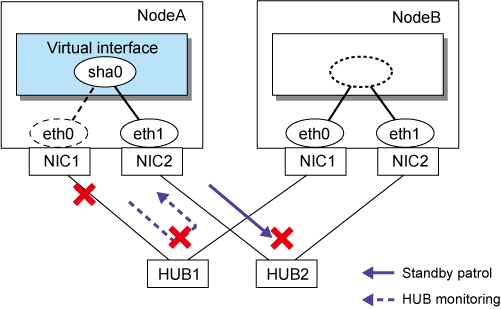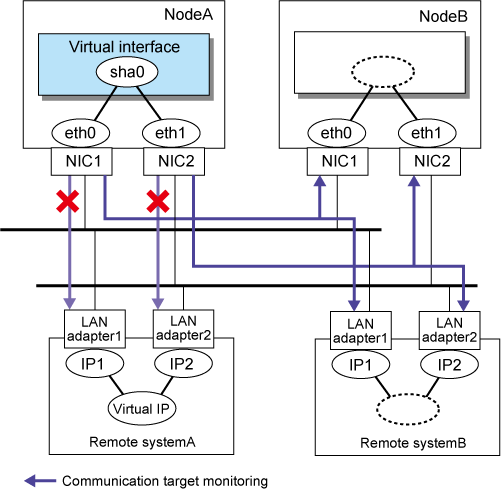While operating a cluster, if every single transfer route fails for a particular virtual interface, a cluster can switchover to the other cluster. With this capability, the system can be recovered, without administrator's interference, by performing switchover within the cluster when detecting failures in the entire transfer route. Cluster fail-over is enabled in the initial setup for duplex transfer route operation in Fast switching mode, NIC switching mode, GS linkage mode. This function is automatically configured when the cluster definition is defined.
Figure 2.36 Cluster failover due to line fault shows an example of fail-over to node B when communication is disabled via both eth0 and eth1 bundled with virtual interface sha0 on node A.
Information
The following is an example of Fast switching mode and this applies to NIC switching mode and GS linkage mode as well.
Figure 2.36 Cluster failover due to line fault

In Fast switching mode, GLS determines that an error has occurred on a node when communication is cut off from another node on the same network (via dedicated monitoring frame) in Fast switching mode.
Figure 2.37 Error detection on a node in Fast switching mode

Information
In Fast switching mode, the system is set as a monitoring destination when it is added to the virtual interface bundles' networks.
In NIC switching mode, GLS determines that an error has occurred if HUB monitoring (by ping) fails a second time during standby patrol after the first HUB monitoring (by ping) failure and after NIC switching is performed.
Figure 2.38 Error detection on a node in NIC switching mode

Information
HUB monitoring is performed for the IP address that is set by the -p option of the hanetpoll command. For details, see "7.1 hanetconfig Command" and "7.7 hanetpoll Command"..
In GS linkage mode, GLS determines that an error has occurred when every remote host monitoring (by ping) for the remote node and other nodes comprising the local cluster failed.
Figure 2.39 Error detection on a node in GS linkage mode

Information
Remote host monitoring is performed for the IP address that is set by the -t option of the hanetobserv command. For details, see "7.13 hanetobserv Command".